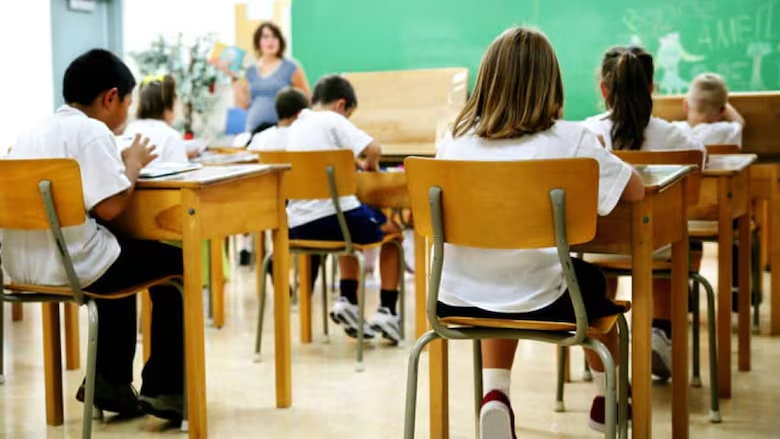Ontario high school teachers 'looking for some real gains'
Calls for an end to government-imposed austerity, pay hikes likely when talks resume in August

Bargaining has yet to begin and already Ontario's high school teachers' union is telling newly-elected Premier Kathleen Wynne that it's "looking for some real gains" after a two-year wage freeze was imposed on its members by her predecessor, Dalton McGuinty.
McGuinty, who styled himself as "the education premier," imposed the wage freeze along with a two-year ban on strikes by teachers, known as Bill 115, in September 2012 after talks with teachers stalled and boiled over into a bitter dispute between the three unions and his minority Liberal government.
"We've made a contribution to this austerity agenda. We understand things are tight, but I think we're looking for some real gains in this round of bargaining," Sherry Freund, the president of bargaining for the Ontario Secondary School Teachers' Federation for Waterloo Region told The Morning Edition host Craig Norris Tuesday.
"Since we have received a pay cut in the last round with unpaid days in addition to a two-year wage freeze, we are definitely looking for the austerity measures we agreed to, to end," she said, noting her union would likely ask for a pay raise for teachers once bargaining begins.
Current agreement set to expire Aug 31
With the current agreement between teachers and the province set to expire on August 31, much has changed since the wage freeze bill was first imposed by the province.
Not only are the unions facing a newly-elected Liberal majority government led by Premier Kathleen Wynne, but they'll be negotiating under a whole new set of rules that were passed by Wynne's then-minority Liberals in February 2013, in an attempt to smooth over frayed relations between the province and its teachers.
Guelph MPP Liz Sandals, who was hand-picked by Wynne to be education minister in 2013 and was re-elected in last week's provincial election, said Tuesday that the new rules will mean the differences of the past can be set aside.
"I really think that under this new bargaining framework, which sets it up so we're all working together, we can actually can have a very serious conversation and come up with some good solutions, even though it is true that we have some serious financial challenges," Sandals said.
"We now know who we're dealing with," Freund said. "We won't be dealing with a party that will be checking with another party before it comes back to the table and I think that might make it a little bit clearer and a little more transparent."
"We're really hopeful about this new fair process," she said. "No-one wants to go on strike. We want a fair deal."
Despite the goodwill expressed by both sides in Ontario, an example of just how quickly talks can break down into a full-scale strike is currently playing out British Columbia, after the province's teachers walked off the job Monday.